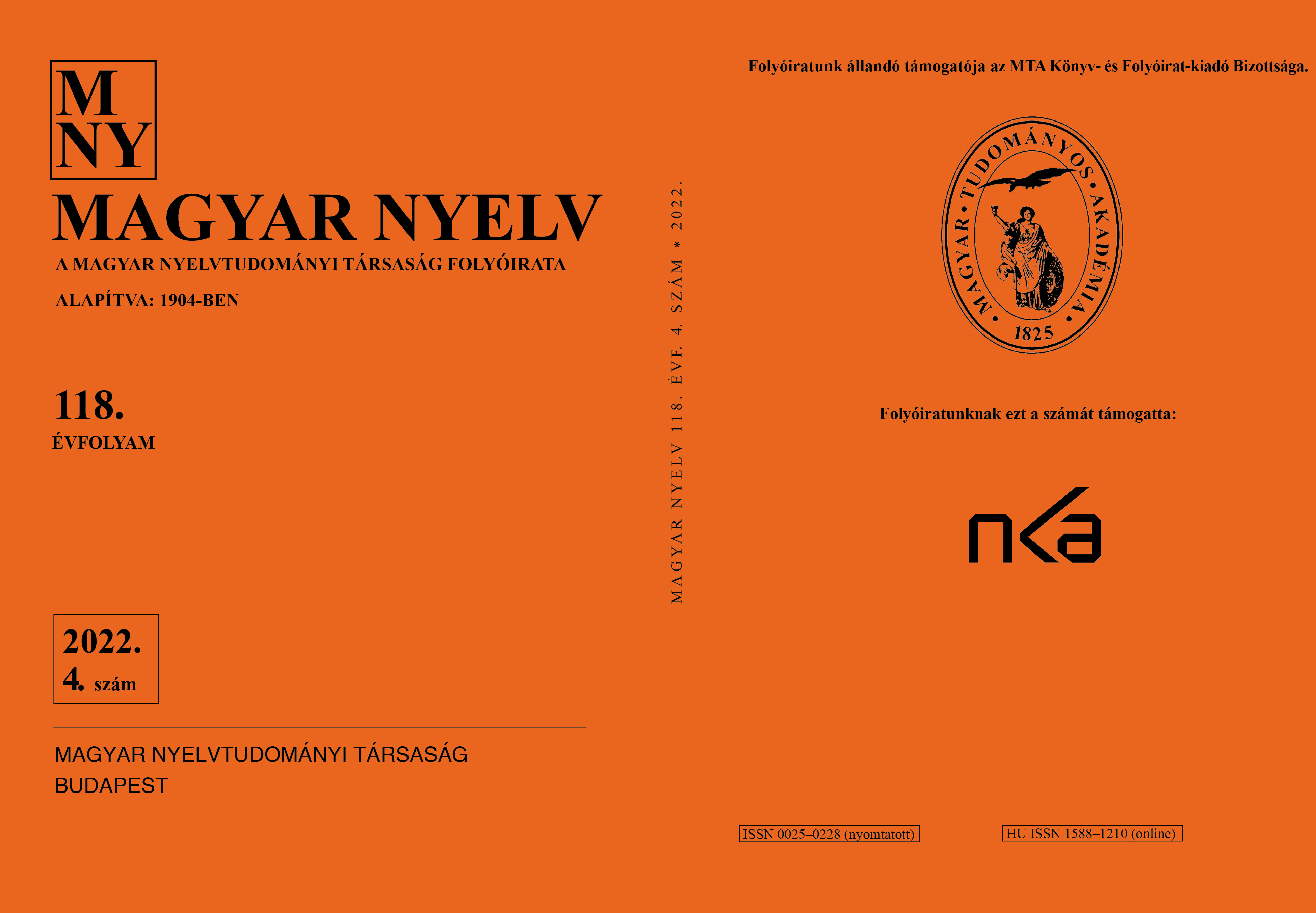“I know that I am Bulgarian, but I feel like a Hungarian”: Bilingualism and language shift of Bulgarians in Skorenovac (Székelykeve)
Part 2
DOI:
https://doi.org/10.18349/MagyarNyelv.2022.4.481Keywords:
Banat Bulgarians, Székelykeve (Skorenovac), bilingualism, language shift, language biographiesAbstract
The study examines the language use, bilingualism and language shift of Bulgarians in Skorenovac based on Hungarian language narratives referring to language use. It also takes into account the social factors that induce language changes in the given settlement. Skorenovac has a relatively short history, as it was founded barely 140 years ago by the settling of Seklers from Bukovina, Hungarians from the Szeged region, as well as Bulgarians and Germans from Banat. In this paper I first outline the historical background of language use and bilingualism of Bulgarians, then, on the basis of metalinguistic narratives of several members of the Skorenovac Bulgarian community, examine the social and linguistic events and practices that pushed Bulgarian-Hungarian bilingualism towards language shift. The language of education, the lack of codification of the Banat Bulgarian language and other social factors that characterized Yugoslavia at the time also played an important role in this process. Finally, I give an insight into the personal efforts and (meta)linguistic practices that aim at strengthening the vitality of the Bulgarian language, as well as the reversal of its decline.
Downloads
Published
Issue
Section
License
Copyright (c) 2022 Éva Vukov Raffai

This work is licensed under a Creative Commons Attribution-NonCommercial-NoDerivatives 4.0 International License.
Magyar Nyelv is a Diamond Open Access periodical. Documents can be freely downloaded and duplicated in an electronic format, and can be used unchanged and with due reference to the original source. Such use must not serve commercial purposes. In the case of any form of dissemination and use, Hungarian Copyright Act LXXVI/1999 and related laws are to be observed. The electronic version of the journal is subject to the regulations of CC BY-NC-ND (Creative Commons – Attribution-NonCommercial-NoDerivatives).
The journal permits its authors, at no cost and without any temporal limitation, to make pre-print copies of their manuscripts publicly available via email or in their own homepage or that of their institution, or in either closed or free-for-all repositories of their institutions/universities, or other non-profit websites, in the form accepted by the journal editor for publication and even containing amendments on the basis of reviewers’ comments. When the authors publicize their papers in this manner, they have to warn their readers that the manuscript at hand is not the final published version of the work. Once the paper has been published in a printed or online form, the authors are allowed (and advised) to use that (post-print) version for the above purposes. In that case, they have to indicate the exact location and other data of the journal publication. The authors retain the copyright of their papers; however, in the case of an occasional secondary publication, the bibliographical data of the first publication have to be included.



